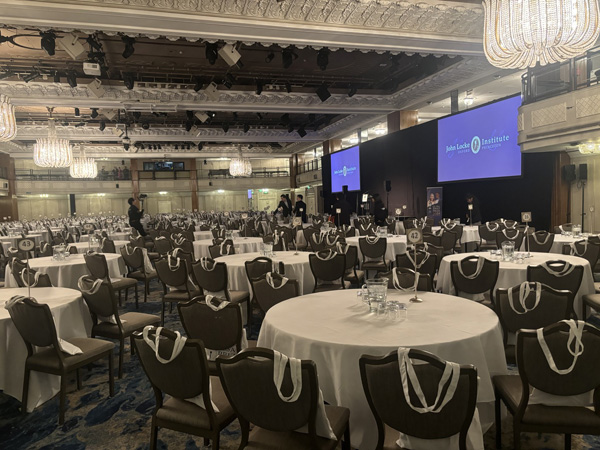John Locke Institute hosts awards ceremony

[A photo of the John Locke Institute Event, Photo credit to Harim Oh]
This September 20th, the John Locke Institute (JLI) hosted its prestigious awards ceremony for its essay competition in London, England.
Dedicated to the promotion of the philosophies of John Locke, the JLI has, for several years, hosted this annual competition in varying subjects including philosophy, economics, history, law, psychology, and theology.
Participants aged 15-18 years old are eligible for the Senior category, where students select one of 3 thought-provoking questions in their chosen subject, while those younger than 15 may choose from 6 different questions in the Junior category that do not have any specific subject but can be interpreted from various fields.
All questions are carefully thought out by a group of experts and professors in that specific category in order to create a challenge for students and inspire critical thinking and research.
The JLI competition is unique in its flexibility — students are allowed to submit multiple entries across different subjects and categories, with no limit on the number of essays, thereby allowing participants to submit several essays for different questions in different categories, or the same category as well.
The competition is free to enter, with a late submission option available for a fee.
While dinners and lectures for the shortlisted essayists accompanying the competition were once freely funded, such support has diminished post-pandemic, most likely due to the exponential increase in applicants.
This year marked a significant milestone for the competition as there was a record-breaking number of approximately 34,000 applicants from all over the globe.
Of these staggering numbers, however, only 16% of essays were shortlisted for the John Locke Gala and award ceremony, held at the prestigious Grosvenor House in the Mayfair district, located in central London.
Starting from September 19th, the weekend was filled with dinners and lectures held by college professors from Oxford and Cambridge, and other distinguished institutions from around the world.
Funding is not the only thing that has changed this year — although these dinners and lectures were held at Oxford University until last year, they moved to the Grosvenor House, a comparatively larger venue, due to the enormous number of applicants this year.
The event caused quite an uproar thanks to special guest, Liz Truss, the former prime minister, who was the highlight of the awards ceremony.
After a speech and introduction to her new book, she announced the winners for each subject, presenting awards to the students of both Senior and Junior categories on stage.
According to its website, the institute “encourages young people to cultivate the characteristics that turn good students into great writers: independent thought, depth of knowledge, clear reasoning, critical analysis and persuasive style”.
Essays are to be 2000 words or fewer, not including bibliographies and references, although the Institute emphasizes that length is not a key factor; instead, learning to be persuasive and writing one’s logical thinking process is of more importance.
There are only three placing winners per category, who are awarded an honorary John Locke Institute Junior Fellowship, which comes with a US $10,000 scholarship for any of the summer schools and/or visiting scholars programmes the Institute hosts.
Such programmes include a summer camp in the subject of choice at universities such as Princeton and Oxford.
The rest of the shortlisted candidates are sorted into different tiers of awards such as Commendations, Merits, and High Commendations and are awarded a certificate.
Although the dates for the next competition remain to be announced, it is anticipated to return in April 2025.

- Harim Oh / Grade 9
- Acellus Academy

![THE HERALD STUDENT REPORTERS [US]](/assets/images/logo_student_us.png)
![THE HERALD STUDENT REPORTERS [Canada]](/assets/images/logo_student_ca.png)
